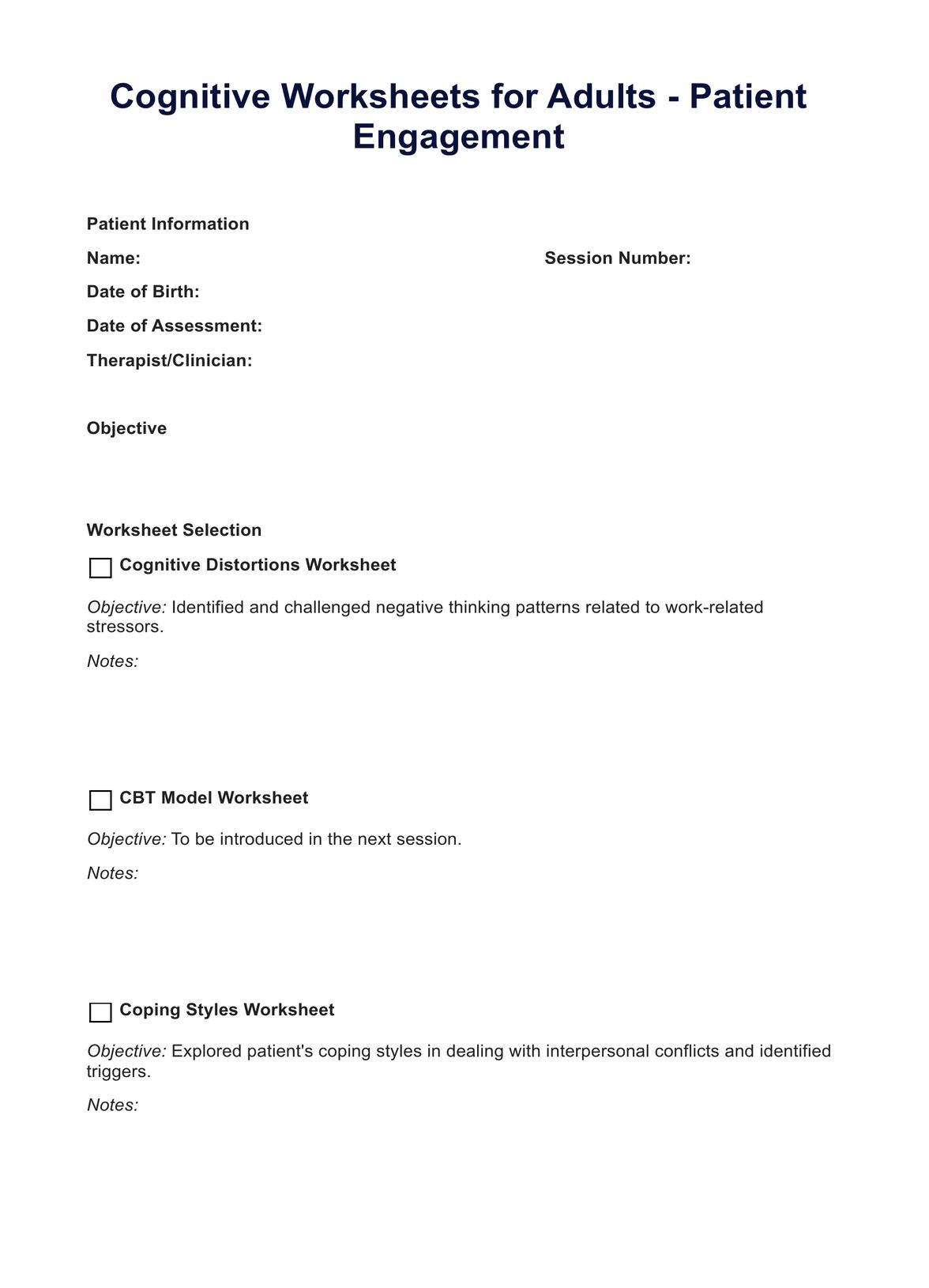A cognitive worksheet for adults stimulates and enhances cognitive functions, including memory, problem-solving, and critical thinking, through targeted exercises.

Cognitive Worksheets for Adults
Elevate adult cognition with our tailored Cognitive Worksheets. Unlock potential, enhance mental acuity, and thrive in daily challenges effortlessly.
Use Template
Cognitive Worksheets for Adults Template
Commonly asked questions
The frequency of use varies, but incorporating cognitive worksheets into your routine a few times a week can yield positive results in cognitive development.
Yes, cognitive worksheets are adaptable and beneficial for adults of all ages, regardless of cognitive ability. They can be customized to meet individual needs and goals.
EHR and practice management software
Get started for free
*No credit card required
Free
$0/usd
Unlimited clients
Telehealth
1GB of storage
Client portal text
Automated billing and online payments











